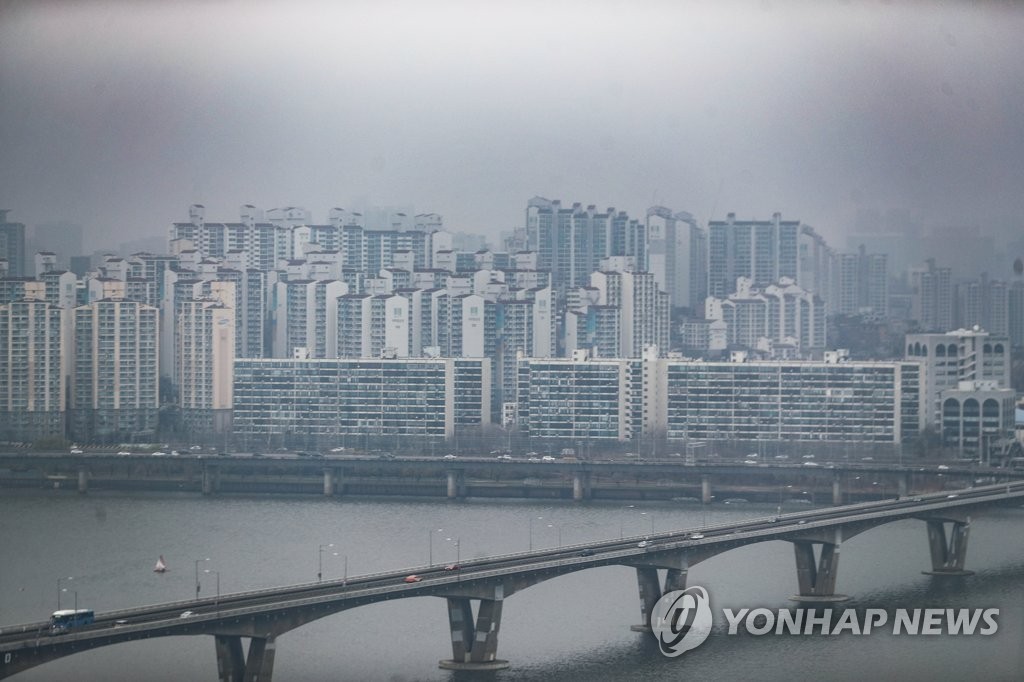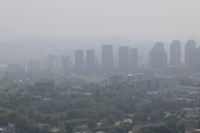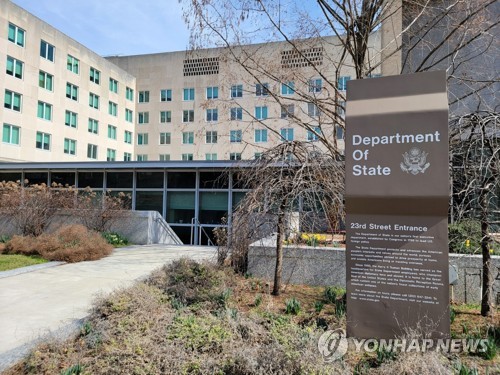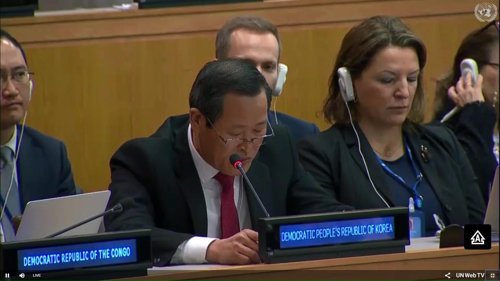(News Focus) Housing supply plan faces hurdles amid snowballing scandal
By Kim Eun-jung
SEOUL, April 1 (Yonhap) -- When investing in real estate, information is money and using leverage is a smart strategy to magnify returns.
Property investors hunt for tips on which region will be picked for large-scale development projects, hoping to get handsome profits or various forms of state compensation.
What if employees of public housing developers have access to such juicy information and bank loans and could buy land in advance of the announcement of new projects without breaking the law? They might be tempted to exploit it and be in the buying mode.
That is what happened to several employees at the state-run Korea Land & Housing Corp. (LH), who are currently under an intensive probe for buying land allegedly using insider information in two satellite cities in Gyeonggi Province before the area was designated as a major public housing development site in February.
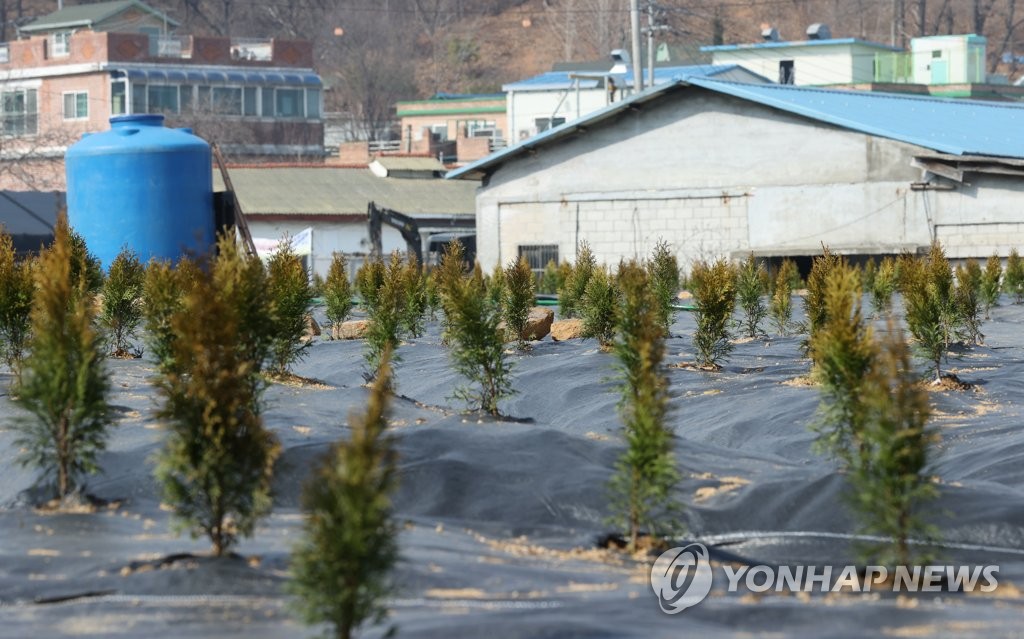
Nursery trees are planted on land in Siheung, about 35 kilometers southwest of Seoul, in this photo taken on March 10, 2021. An employee of the state-run Korea Land & Housing Corp. (LH) bought the land allegedly using insider information before the area was chosen as a major housing development site. (Yonhap)
And it turned out to be only the tip of the iceberg for rampant property speculation not only by LH employees but also government officials from agencies across the nation as well as their family members.
A probe team overseeing all speculation cases prompted by the LH scandal is currently investigating more than 530 people, including more than a hundred former and current public servants.
The scandal is an embarrassment for the Moon Jae-in administration, which has repeatedly declared "a war on real estate speculators" but never succeeded in cooling down the red-hot housing market despite a raft of regulations since taking office in May 2017.
The explosive issue also comes at a crucial time in the run-up to the mayoral by-elections in Seoul and Busan, South Korea's two biggest cities, slated for April 7, and the ruling candidates are already feeling the pinch of the growing public discontent over the botched real estate policy.
Oh Se-hoon, the main opposition party's Seoul mayoral candidate, outpaced his liberal rival Park Young-sun by double digits in multiple polls released over the past week.
On Monday, Moon once again apologized for troubling the nation over the LH scandal and vowed strong measures to stem out property-related corruption among public servants, saying, "We should go back to square one and start anew."
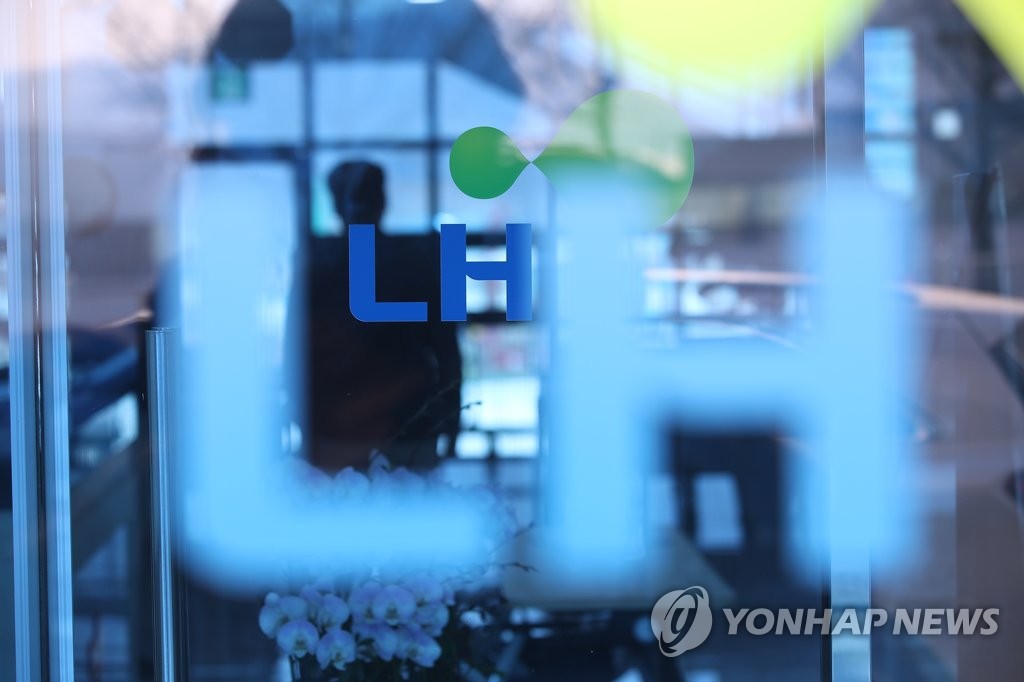
In this file photo, police raid the Gwacheon branch of the state-run Korea Land & Housing Corp. (LH), south of Seoul, on March 9, 2021. (Yonhap)
In response, the government and the ruling Democratic Party said they will push for law revision to root out real estate speculation by public officials.
Under the proposed anti-corruption measures, all public officials will be required to report their assets, and those working in related sectors will also be banned from acquiring any real estate linked to their jobs.
The government also warned of tough criminal punishment for public officials found to have made illegal profits by using undisclosed information, including not only confiscating all such profits but also fining them three to five times the illegal profits.
Ruling party lawmakers promptly proposed bills to retroactively confiscate illegal profits if necessary, which is equivalent to a punishment imposed when seizing property of descendants of pro-Japanese collaborators during the colonial rule.
Market watchers viewed the latest measures as the Moon administration's last-ditch efforts to win back public support, but they questioned the feasibility of the comprehensive regulations on all public officials, which even include retroactive punishment.
"As the LH scandal badly hurt the public sentiment, the government rushed to draw anti-speculative measures to put a lid on the issue," Shim Kyo-eon, a real estate professor as Konkuk University, said.
"The government has to dig deeper into why the current development projects lead to speculation and come up with relevant measures. The strong regulations that were hastily prepared pose their own limitations."
Despite the unfolding property speculation scandal, Finance Minister Hong Nam-ki said the government will go ahead with its earlier plan to increase housing supply and announce another development site for 150,000 units next week.
In the latest measures announced Feb. 4, the land ministry said it will ease building regulations and support redevelopment projects in the Seoul metropolitan area and other major cities as part of its plan to supply 836,000 homes in the next four years.
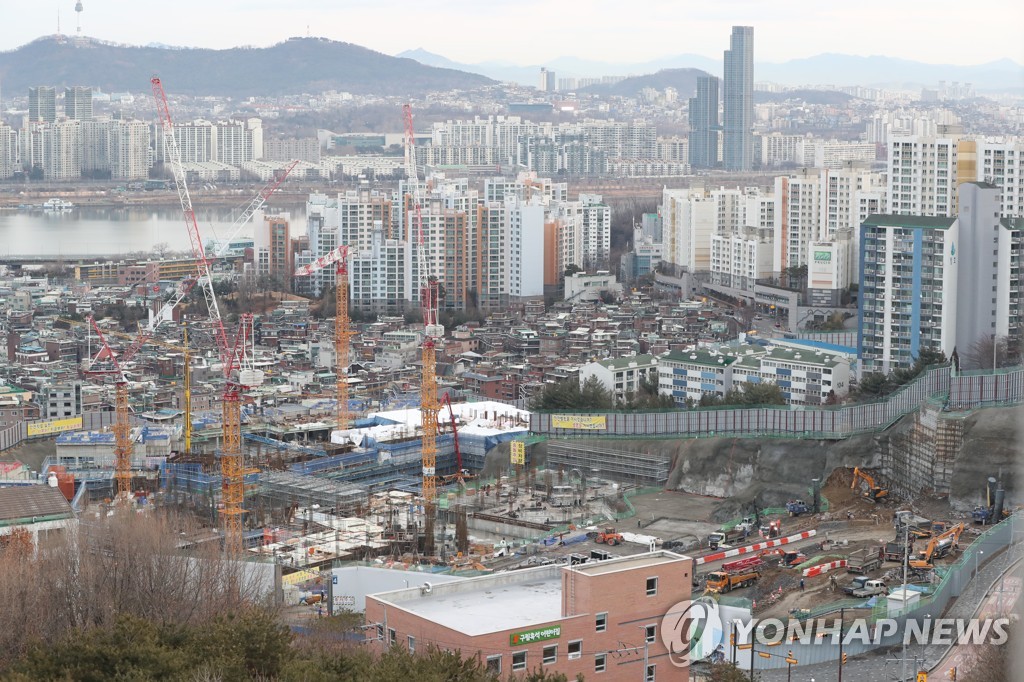
In this file photo, construction is under way in a redevelopment site in Dongjak-ward in Seoul on Feb. 12, 2021. (Yonhap)
The ambitious supply plan focusing on large housing site development and urban redevelopment, however, may find it hard to earn support from existing land owners and residents due to rising distrust over projects involving public developers.
LH, a powerful public company with 10,000 employees and 185 trillion won (US$163.2 billion) of assets under management, is now derided as "Lotto & Housing" and faces calls for an overhaul to reduce its power.
Land Minister Byeon Chang-heum, who formerly served as the chief of LH from April 2019 and December 2020, is deemed not to be in a position to carry out bold reforms, as he offered to resign last month to take responsibility over the LH scandal.
Industry observers are worried the government's supply plan could lose momentum without strong leadership and concrete action plans, which could again dash hope for those who were waiting to buy new houses at affordable prices.
"If the government scraps the new housing development project, it would cause concerns over supply shortage and draw strong backlash," Park Won-gap, a senior real estate analyst at KB Kookmin Bank, said. "Non-homeowners and newlyweds who have been waiting to buy new houses would be disappointed."
Home prices, especially in the Seoul metropolitan area, have kept rising despite the government's efforts to stabilize the real estate market, dragging down Moon's approval ratings to the lowest point of 34 percent last week, a Gallup Korea survey showed.
The average price of apartments spanning 83 square meters in Seoul reached 1.2 billion won last year, jumping 82 percent over the past four years, according to the data from the Citizens' Coalition for Economic Justice, a civic group.
The rising property prices and tight lending rules have made it more difficult not only for low-income families but also high earners to buy a home in Seoul without financial support from their parents.
If the supply plan hits a snag due to strong regulations and distrust over public developers, watchers say soaring housing prices could show no sign of letup amid the ample liquidity, and non-homeowners and low-income families will bear a heavier burden of rising housing costs.
"The government unleashed a raft of tough regulations, but such measures could drag down the real estate development market," Kwon Dae-jung, a real estate professor at Myongji University, said. "It is desirable to rein in real estate speculation, but the government also has to carefully study how these measures will affect the market."
ejkim@yna.co.kr
(END)
-
 BTS' Jungkook's 'Seven' chosen as hottest hit outside U.S.
BTS' Jungkook's 'Seven' chosen as hottest hit outside U.S. -
 From pastime to academic discipline: Exhibition spotlights evolution of Korean embroidery
From pastime to academic discipline: Exhibition spotlights evolution of Korean embroidery -
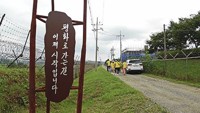 Gov't to open 10 trails near DMZ for visitors next month
Gov't to open 10 trails near DMZ for visitors next month -
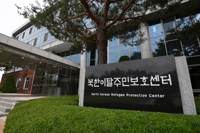 Number of N. Korean defectors entering S. Korea reaches 43 in Q1
Number of N. Korean defectors entering S. Korea reaches 43 in Q1 -
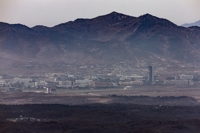 N. Korea dismantles S. Korean building near shuttered Kaesong complex
N. Korea dismantles S. Korean building near shuttered Kaesong complex
-
 From pastime to academic discipline: Exhibition spotlights evolution of Korean embroidery
From pastime to academic discipline: Exhibition spotlights evolution of Korean embroidery -
 BTS' Jungkook's 'Seven' chosen as hottest hit outside U.S.
BTS' Jungkook's 'Seven' chosen as hottest hit outside U.S. -
 Trump suggests U.S. could withdraw its troops if S. Korea does not contribute more to support USFK: TIME
Trump suggests U.S. could withdraw its troops if S. Korea does not contribute more to support USFK: TIME -
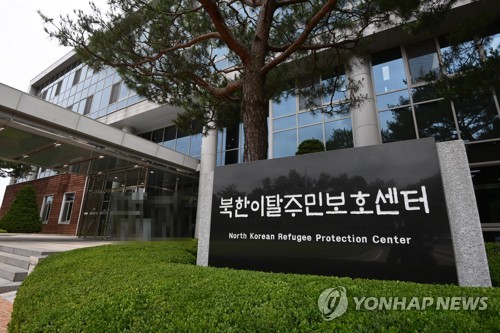 Number of N. Korean defectors entering S. Korea reaches 43 in Q1
Number of N. Korean defectors entering S. Korea reaches 43 in Q1 -
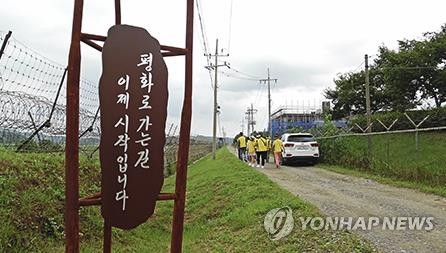 Gov't to open 10 trails near DMZ for visitors next month
Gov't to open 10 trails near DMZ for visitors next month
-
 Police tracking down bomb threat on public facility
Police tracking down bomb threat on public facility -
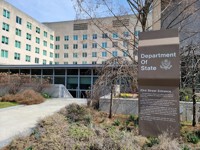 (Yonhap Interview) U.S. will do 'all' it can to back S. Korea in case of China's economic coercion: official
(Yonhap Interview) U.S. will do 'all' it can to back S. Korea in case of China's economic coercion: official -
 Defense chiefs of U.S., Australia, Japan decry N.K.-Russia military cooperation
Defense chiefs of U.S., Australia, Japan decry N.K.-Russia military cooperation -
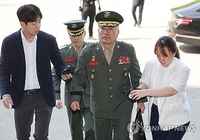 (LEAD) Marine Corps commander summoned by CIO for questioning on alleged influence-peddling case
(LEAD) Marine Corps commander summoned by CIO for questioning on alleged influence-peddling case -
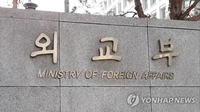 Foreign ministry trying to locate missing S. Korean traveler in Paris
Foreign ministry trying to locate missing S. Korean traveler in Paris

